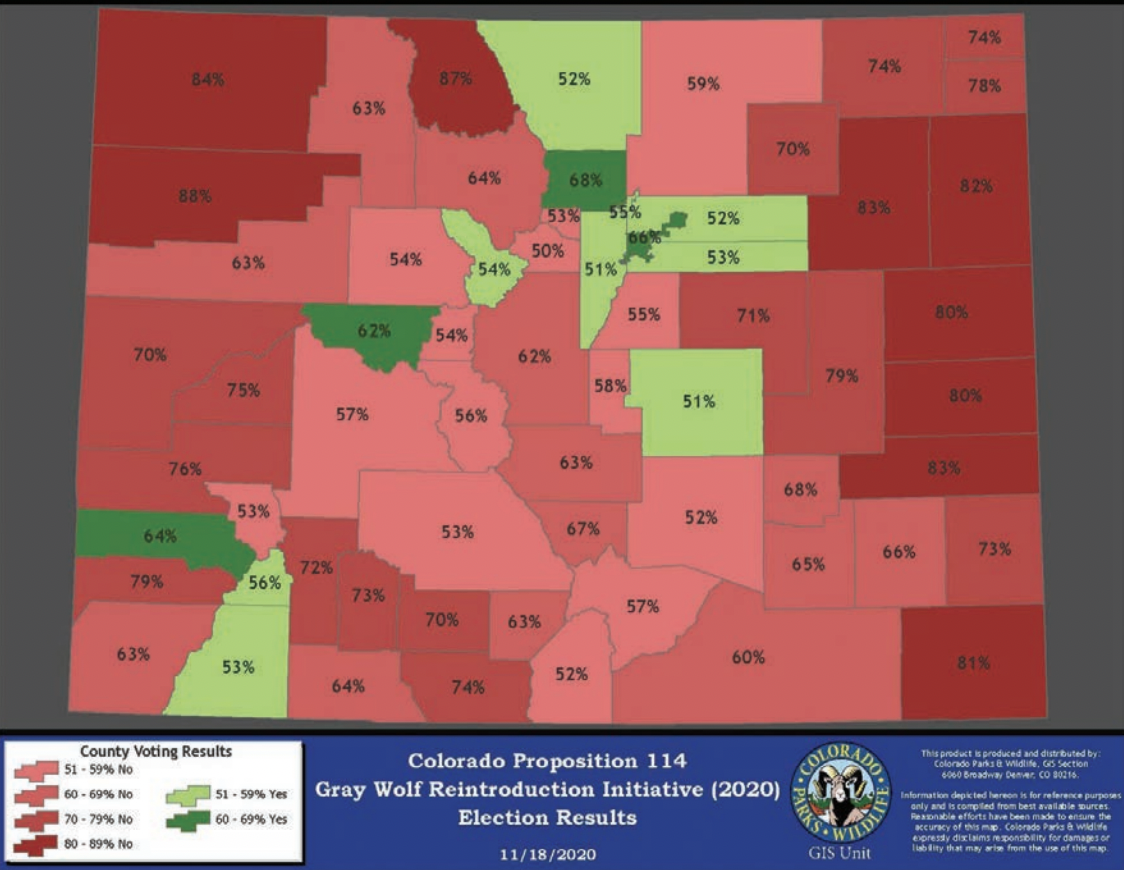Colorado Springs guide says wolf reintroduction will impact the Colorado hunting industry
COLORADO SPRINGS, Colo. (KRDO) - Local guides have concerns over how the reintroduction of gray wolves in the state this month will impact their business and livelihood over the next few years, if not immediately.
Jim Johnson has been an outfitter and guide in Colorado for over 20 years. He says that this new introduction of wolves threatens his big game hunting business, Elk Glade Outfitters.
"The hunting business is one of the largest parts of the tourist industry in Colorado," Johnson said. "It would devastate rural Colorado, absolutely devastate us. So we need to have animals to hunt. And if there's no animals to hunt, there's no hunting."
According to the Colorado Wildlife Council, the hunting industry is worth $843 million.
Johnson operates out of the Broadmoor Hotel often but takes guests over an hour away from Colorado Springs to an heirloom property east of Beaver Creek that serves as a cattle ranch and hunting grounds. As a cattle ranch owner, he's just as concerned about the burden of proof required to show that an introduced wolf has killed his livestock to get compensation from the wolf reintroduction program.
"The problem is a lot of the cattle that we lose, we never find. And if I can't show the carcass that has signs of predation by wolves, I don't get anything for that," Johnson said.
According to Colorado Parks and Wildlife, Gray wolves are supposed to be introduced no later than Dec. 31, 2023. CPW says they can't say precisely where they will be released, "for the safety and security of gray wolf release operations." According to their website, the species will likely migrate up to the Front Range of Colorado.
In an email statement, Colorado Parks and Wildlife acknowledged the impact introducing wolves might have on wildlife populations.
"Wolves will eat ungulates like deer, elk and moose. But, wolf populations will need to be established for an extended period before we understand the extent of their impact on populations of prey species like deer, elk and moose in Colorado," Travis Duncan with Colorado Parks and Wildlife wrote.
In the final reintroduction plan, the state organization also acknowledged that it will have an impact on the wildlife populations the hunting industry relies on, something Johnson is primarily concerned about.
"Negative impacts could include, but are not limited to: depredation and harassment of livestock, herd dogs and guard animals; loss of pets and hobby animals; concentration of wild ungulates on private lands possibly resulting in property damage; reduced ungulate hunting or viewing opportunities
and related economic considerations; reduced hunting license sales resulting in a reduction in recreational opportunity and decreased revenue for wildlife management; and declines in ungulate populations or in ungulate recruitment rates."
Final Colorado Wolf Restoration and Management Plan
Johnson said that his colleagues in the hunting guide industry said that when the wolves were reintroduced, it often meant the brutal death of species lower on the food chain if not complete decimation.
"Wolves were introduced about 20 years ago, and my hunting colleagues in Canada say that the herds are decimated, that it's not uncommon for them to see what looks like a kangaroo in the forest and they get near it and it's an elk that has been hamstrung by wolves," Johnson said.
The decision to reintroduce comes after a 2020 ballot initiative passed. On Saturday, a lawsuit that sought to temporarily halt the wolf introduction was brought down by a federal judge in Colorado.
The 2020 election results show that most rural counties voted against the measure.

Johnson explained that there are multiple non-lethal ways to mitigate the impact wolves will have on his livelihood, but they will be costly and difficult to implement. One of those is buying a wolfhound, a type of dog that can be aggressive to anyone except its owner, introducing liability for businesses like Johnson's.
"You can put bells on fences, you can put up like kind of wolf scarecrows, you can put riders out. But again, all at great expense," Johnson explained.
